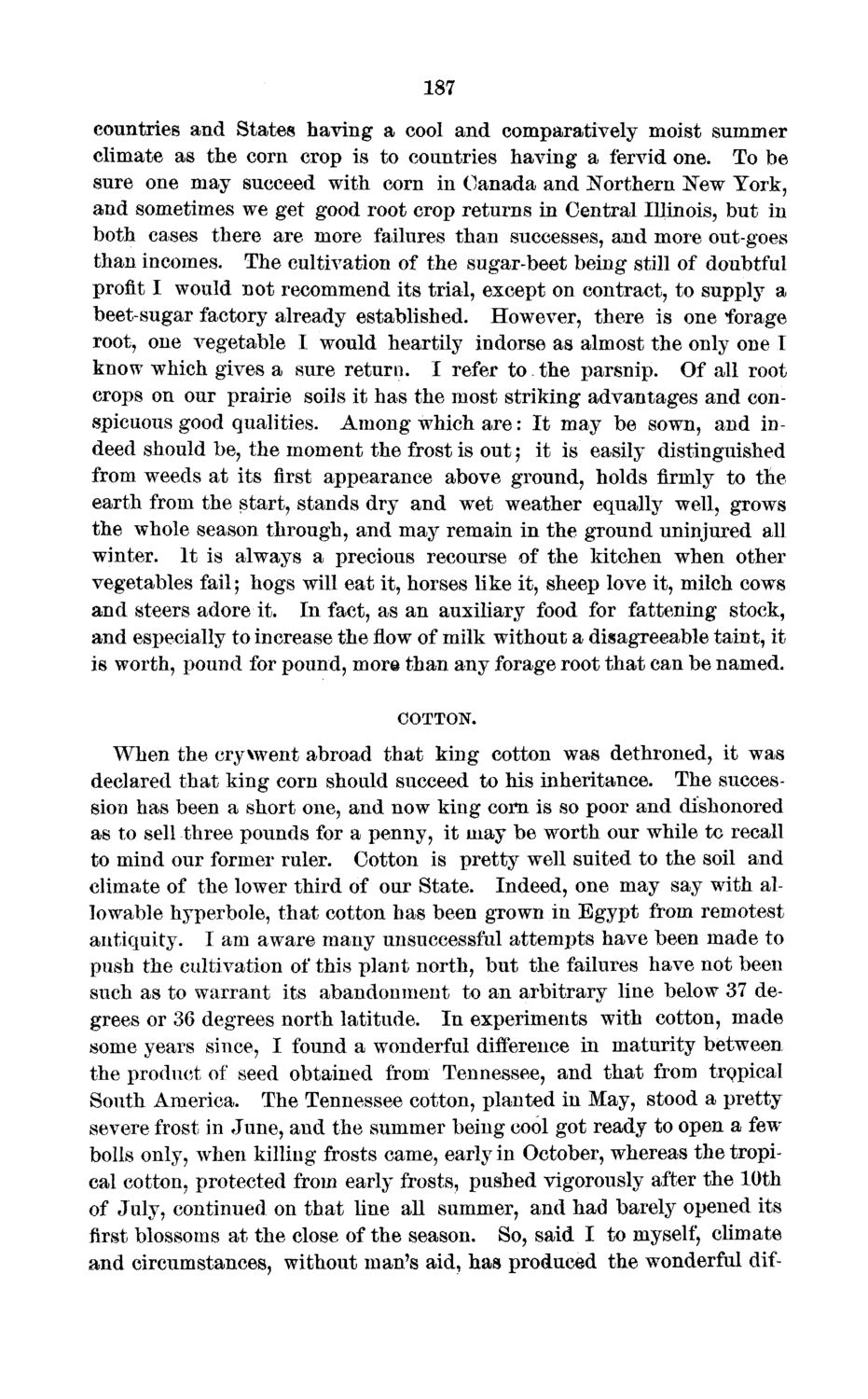| |
| |
Caption: Board of Trustees Minutes - 1873
This is a reduced-resolution page image for fast online browsing.

EXTRACTED TEXT FROM PAGE:
187 countries and States having a cool and comparatively moist summer climate as the corn crop is to countries having a fervid one. To be sure one may succeed with corn in Canada and Northern New York, and sometimes we get good root crop returns in Central Illinois, but in both cases there are more failures than successes, and more out-goes than incomes. The cultivation of the sugar-beet being still of doubtful profit I would not recommend its trial, except on contract, to supply a beet-sugar factory already established. However, there is one forage root, one vegetable I would heartily indorse as almost the only one I know which gives a sure return. I refer to the parsnip. Of all root crops on our prairie soils it has the most striking advantages and conspicuous good qualities. Among which are: It may be sown, and indeed should be, the moment the frost is out $ it is easily distinguished from weeds at its first appearance above ground, holds firmly to the earth from the start, stands dry and wet weather equally well, grows the whole season through, and may remain in the ground uninjured all winter. It is always a precious recourse of the kitchen when other vegetables fail; hogs will eat it, horses like it, sheep love it, milch cows and steers adore it. In fact, as an auxiliary food for fattening stock, and especially to increase the flow of milk without a disagreeable taint, it is worth, pound for pound, more than any forage root that can be named. COTTON. When the cry\went abroad that king cotton was dethroned, it was declared that king corn should succeed to his inheritance. The succession has been a short one, and now king corn is so poor and dishonored as to sell three pounds for a penny, it may be worth our while to recall to mind our former ruler. Cotton is pretty well suited to the soil and climate of the lower third of our State. Indeed, one may say with allowable hyperbole, that cotton has been grown in Egypt from remotest antiquity. I am aware many unsuccessful attempts have been made to push the cultivation of this plant north, but the failures have not been such as to warrant its abandonment to an arbitrary line below 37 degrees or 36 degrees north latitude. In experiments with cotton, made some years since, I found a wonderful difference in maturity between the product of seed obtained from Tennessee, and that from tropical South America. The Tennessee cotton, planted in May, stood a pretty severe frost in June, and the summer being cool got ready to open a few bolls only, when killing frosts came, early in October, whereas the tropical cotton, protected from early frosts, pushed vigorously after the 10th of July, continued on that line all summer, and had barely opened its first blossoms at the close of the season. So, said I to myself, climate and circumstances, without man's aid, has produced the wonderful dif-
| |